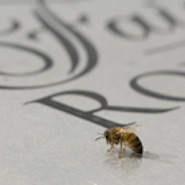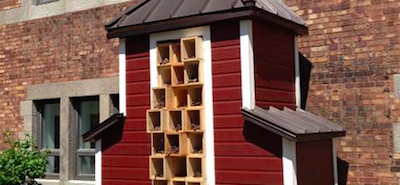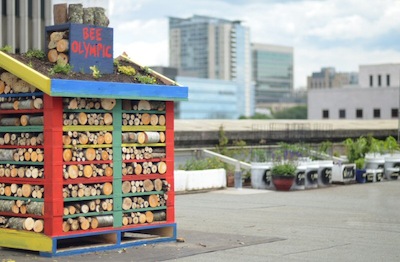 Fairmont's Bee Sustainable program
Fairmont's Bee Sustainable program
Fairmont Hotels and Resorts across the United States are buzzing with new residents.
As the population of bees continues to decline, the hotel chain has unveiled new wild bee hotels at its properties in the U.S. Fairmont’s new wild bee hotels were designed in collaboration with Pollinator Partnership, a group dedicated to protecting the habitat of bees.
Busy bees
Fairmont and Pollinator Partnership have designed 10 “luxurious” bee hotels to attract wild mason bees, a species of bee very effective at pollinating. Habitat loss has been a leading cause of decline in bee populations.
With many taking the insect’s role for granted, Fairmont is hoping to reverse attitudes, as bee populations are responsible for the pollination of one-third of food produced in the U.S.
The hotelier’s Bee Sustainable initiative, part of its larger Fairmont Sustainability Partnership program, has seen 40 apiaries and pollinator bee hotels set up at its global network of properties. The goal of the partnership is to improve the overall health and conservation of bee species globally.
Fairmont bee hotel
New bee hotels can be found at the Fairmont-managed Plaza Hotel in New York, Fairmont Copley Plaza in Boston, Fairmont Washington, Fairmont Dallas, Fairmont San Francisco, Fairmont Olympic in Seattle, Fairmont San Jose, Fairmont Newport Beach, CA, Fairmont-managed Claremont Hotel & Spa outside San Francisco and Fairmont Sonoma Mission Inn and Spa in Sonoma, CA.
Working with Pollinator Partnership, the bee hotels are designed to incorporate reclaimed materials and were inspired by the hotel’s local surroundings. For instance, the bee hotel at Fairmont Sonoma Mission Inn & Spa, found in California’s Napa Valley, was made from a wine barrel, while the Washington property’s bee hotel includes a miniature version of the Washington Monument.
“Fairmont is the industry leader when it comes to supporting honeybee health and has been leading this charge over the decade. Expanding our focus to wild mason bees and their need for habitat is a natural evolution of our bee programming,” said Jane Mackie, vice president of Fairmont Hotels & Resorts, in a statement.
Fairmont bee hotel in Seattle
“Wild bees are incredibly efficient pollinators and we rely on them for 80 percent of the food we eat,” she said. “Our hope is that these 10 bee hotels become the first of many that are built by businesses and Americans across the country.”
To further awareness for its program, Fairmont chefs have developed special menu items that include ingredients that rely on bees for pollination. The hotel has also created Bee Sustainable packages, available throughout the summer, that will allocate funds from booked rooms to Pollinator Partnership.
At its hotel store, consumers can purchase a limited number of pre-made mini-bee hotels starting in mid-July.
Across the pond, British department store Fortnum & Mason has showcased the people behind its coveted honey collections in a social video.
The video spends time on the store’s roof with two of the men that handle the honey cultivation. For consumers who look forward to buying the retailer’s curated honey selection each year, the behind-the-scenes video will resonate (see story).


